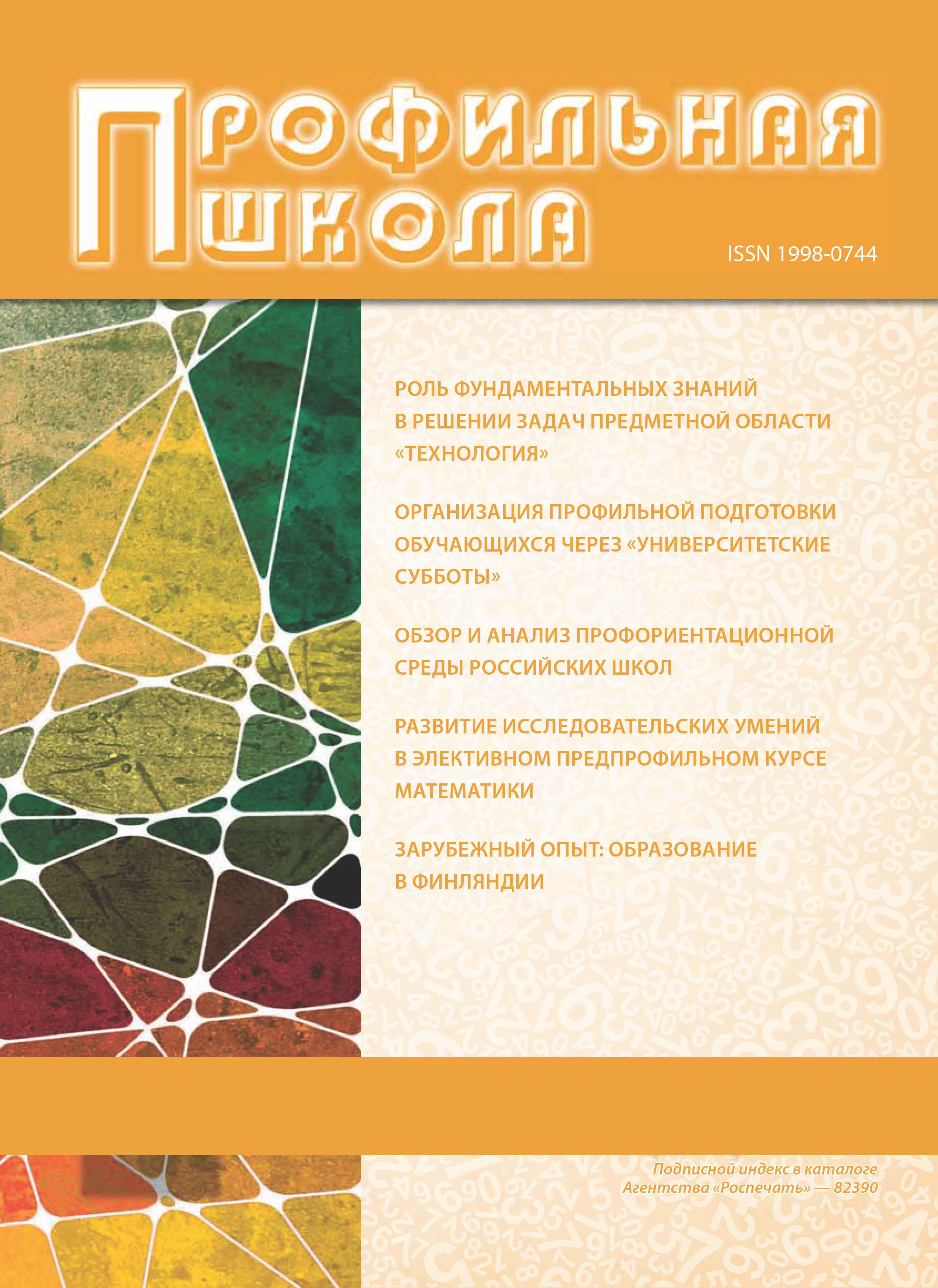The article presents the issues related to the knowledge and educational capital of young people who, despite quality education and skills, often face difficulties in entering the labor market. The article reveals the essence and types of knowledge, distinguishes between information, knowledge and wisdom. A scheme of the educational development trajectory is proposed, taking into account the dual model of learning. The results of an empirical study conducted among students are presented, in the focus of which the process of creating educational capital is positioned. The authors have developed a methodological approach to the program for increasing the intellectual potential of students, built as an integral system of conceptual-target, content and analytical-effective components, aimed at personal transformation and new educational results, the content of which is determined by the supply of goals, meanings, values, priorities, way of thinking of the modern student.
education, intellectual potential, educational capital, knowledge, information, data, information society
1. Abaturova V.V. O gosudarstvennoy informacionnoy sisteme «Sovremennaya cifrovaya obrazovatel'naya sreda» // Profil'naya shkola. - 2020. - № 6. - S. 3-10. EDN: https://elibrary.ru/XUJDSB
2. Baisheva M.I. Etnopedagogicheskie vozzreniya kak duhovnaya mudrost' naroda v nasledii klassikov pedagogiki // Fundamental'nye issledovaniya. - 2013. - № 5.
3. Barannikov A.V. Organizacionno-obuchayuschiy kontent kak faktor nepreryvnogo obrazovaniya v usloviyah cifrovoy deystvitel'nosti // Konferencium ASOU: Sbornik nauchnyh trudov i materialov nauchno-prakticheskih konferenciy. - 2021. - № 4. - S. 6-31. EDN: https://elibrary.ru/BUXYPS
4. Brooking A. (2010), Intellectual Capital, Core Asset for the Third Millennium Enterprise, CENGAGE Learning EMEA, Hampshire.
5. Vil'gel'm E.V., Marabaeva L.V. Evolyuciya kategorii «znanie» v ekonomike i menedzhmente // Fundamental'nye issledovaniya. - 2015. - № 12 (chast' 6). - S. 1189-1193. EDN: https://elibrary.ru/VLDCMF
6. Danyushenkov V.S., Korshunova O.V. Metodologicheskie podhody k obucheniyu v sel'skoy shkole // Pedagogika. - 2018. - № 8. - S. 69-78.
7. Druker P. Menedzhment. Vyzovy XXI veka.: Per. s angl. - M.: OOO “I.D. Vil'yams», 2012. - 256 s.
8. Ivanova N.G. Teoreticheskiy aspekt ponyatiya «obrazovatel'nyy kapital // Sociologiya. - 2018. - № 2. - S. 28-32.
9. Karyakin Yu.V. O formah znaniya v obrazovanii // Fundamental'nye issledovaniya. - 2013. - № 4 (chast' 5). - S. 1275-1279. EDN: https://elibrary.ru/PXMLOJ
10. Kak prostroit' kompaniyu, orientirovannuyu na znaniya [Elektronnyy resurs] // HR-Portal. 2019. 3 fev. - URL: https://hr-portal.ru/article/kak-prostroit-kompaniyu-orientirovannuyu-na-znaniya4 (data obrascheniya: 09.04.2022).
11. Lyz' N.A. Vidy i formy pedagogicheskogo znaniya // Municipal'noe obrazovanie: innovacii i eksperiment. - 2014. - № 6. - S. 40-45. EDN: https://elibrary.ru/TCVFPR
12. Lundvall B., Johnson B., 1994, The Learning Economy, Journal of Industry Studies, Vol. 1, No. 2.
13. Nonaka I., Takeuchi H., 1995, The Knowledge - Creating Company. How Japanese Companies Create the dynamic of Innovation, New York, Oxford University Press.
14. Platon. - M: Mysl', 1975. - 220 s. - (Mysliteli proshlogo).
15. Piramida DIKF [Elektronnyy resurs] // Glava 3. Teoreticheskie aspekty inzhenerii znaniy. Piramida znaniy. - URL: https://scask.ru/m_book_bki.php?id=22 (data obrascheniya: 10.04.2022).
16. Popova I. Kar'ernyy kapital: konceptual'nye podhody// Vestnik RGGU: Seriya «Filosofiya. Sociologiya. Iskusstvovedenie». - 2021. - № 1. - S. 78-88 DOI: https://doi.org/10.28995/2073-6401-2021-1-78-88; EDN: https://elibrary.ru/QGXKTN
17. Ryzhakov M.V., Shishov S.E. Uroki i opyt razrabotki gosudarstvennyh obrazovatel'nyh standartov v Rossiyskoy Federacii // Pedagogika. - 2019. - № 2. - S. 3-13.
18. Sorokin P.S., Frumin I.K. Obrazovanie kak istochnik deystviya, sovershenstvuyuschego struktury: teoreticheskie podhody i prakticheskie zadachi// Voprosy obrazovaniya. - 2022. - № 1. - S. 116-137 DOI: https://doi.org/10.17323/1814-9545-2022-1-116-137; EDN: https://elibrary.ru/WVROXL
19. Tomashevskiy T. Znanie kak reproduktivnaya i negativnaya sistema. - Pol'sha, Valgus, 1976. - 489 s.
20. Turska E., 2014, Kapitał kariery ludzi młodych. Uwarunkowania i konsekwencje, Wydawnictwo Uniwersytetu Śląskiego, Katowice, p. 48.
21. Ushankov V.A. K voprosu o predmete teoreticheskogo znaniya v strukture ekonomicheskoy nauki // Problemy sovremennoy ekonomiki. - 2013. - № 3 (47). - S. 78-84. EDN: https://elibrary.ru/RSUZHR
22. Shaydenko N.A. Sovremennoe zvuchanie i ispol'zovanie gumanisticheski orientirovannyh pedagogicheskih tehnologiy 20-h godov XXveka // Vestnik GOU DPO TO «IPK I PPRO TO». Tul'skoe obrazovatel'noe prostranstvo. - 2022. - № 1. - S. 19-22. EDN: https://elibrary.ru/NKQRCY
23. Yarasheva A.V. Obrazovatel'nyy kapital kak osnova postroeniya trudovyh strategiy // Narodonaselenie. - 2020. - T. 23. - № 4. - S. 115-124. DOI: https://doi.org/10.19181/population.2020.23.4.11; EDN: https://elibrary.ru/ATRQPO






